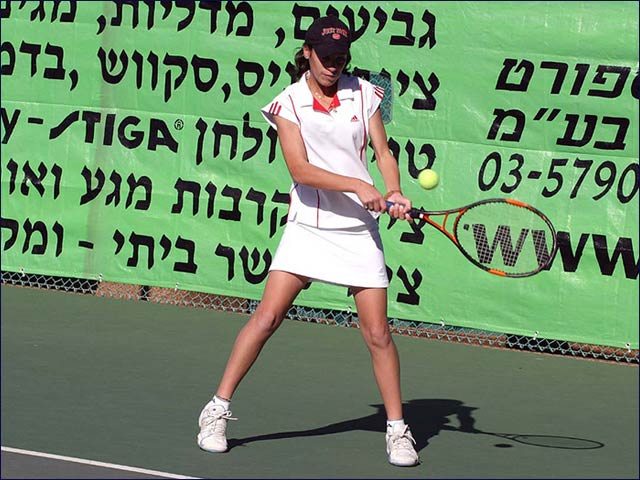By Rivka Borochov
When Freddy Krivine died in 2005, his daughter Jane had to make some difficult decisions. Krivine, one of the founders of
Israel Tennis Centers, came to Israel from England in 1984. At a children's tennis tournament that took place in the late 1990's in which 600 children participated, he was surprised to learn that only four of them were from the Arab sector. He decided to start the Freddie Krivine Foundation to teach tennis to Arab-Israeli children.
At the time of his death, the Foundation was running tennis programs that were reaching hundreds of children. Jane Krivine had been assisting her father since 2003 and was familiar with the programs. One in particular gave her pause. The Foundation was running a costly venture busing Arab children from the poor Mediterranean coastal community of Jisr el Zarka to play tennis four or five times a week with well-to-do kids from the nearby Jewish city of Caesarea. Krivine wondered whether the Foundation should continue sponsoring a program that involved only 10 kids a year per age group.

Ruan Zubidate, Israel’s top female Arab tennis player
In the end, she decided to continue all of the programs, including the Caesarea program. Not long ago, the players from the first class of Jisr el Zarka, who had started at age eight, turned 18. It was then that Krivine received the golden egg that every human-rights worker, philanthropist or educator hopes for.
Meeting with the group, she asked the teens about their future career plans. Four wanted to be doctors, one a veterinarian, and the rest had similarly worthwhile aims. She finally understood the fruits of labor her dad had dreamed about: By being exposed to kids from Caesarea who can usually go on to study medicine or law or anything they want to, the Arab kids, too, could aim higher.
Coaching the next generation
Over the years, the Freddie Krivine Foundation has trained more than 6,000 young Arabs in tennis. Most are Israeli citizens; some are Palestinians from East Jerusalem. The Foundation also provides help for students who outgrow junior tennis lessons, encouraging them to become certified as tennis coaches at the
Wingate Institute near Netanya.
“We are absolutely focused on them being assistant coaches or professional coaches so they have an opportunity to have an alternative in their lives, particularly when they are students,” Krivine says.
Apart from highly subsidized tennis lessons, and transportation for the more gifted students, the Foundation supports the creation and refurbishment of tennis courts in Arab cities where none exist, or where courts had existed but were neglected.
Success stories
DunjaImram al-Sous, a young woman of Swiss and Palestinian descent living in East Jerusalem, was able to access tennis at the Israel Tennis Center in Jerusalem from the age of 10 -- thanks to the Foundation, which paid for her transportation to and from lessons.
Now, the Foundation has announced that al-Sous has received a full tennis scholarship to Michigan Tech University in the United States.
And Ruan Zubidate from the Bedouin village of Bizmat Tivon, is considered Israel’s best Arab woman tennis player. She travels around the world representing Israel, exposing its unique cultural diversity with a smile and a wicked serve.
Another success story involves students from the Caesarea exchange. Two years ago, the Foundation joined up with a project called Tenacity in the United States, where young Arab tennis coaches from Jisr el Zarka are sent to train underprivileged kids in Boston. Here, during their first trip abroad, they get to broaden their horizons and even pick up some English while they’re at it.
Contact and coexistence
Freddy Krivine, back in the 1990's, understood that tennis provided a way for kids to interact who normally would never even meet each other. In addition to the kids in the Caesarea program, Arab and Jewish youngsters meet for training and tournaments, and establish contact and friendships on the basis of what they have in common – not only tennis, but their hopes and ambitions to succeed in other areas as well.
Look for the Freddie Krivine Foundation on Facebook.